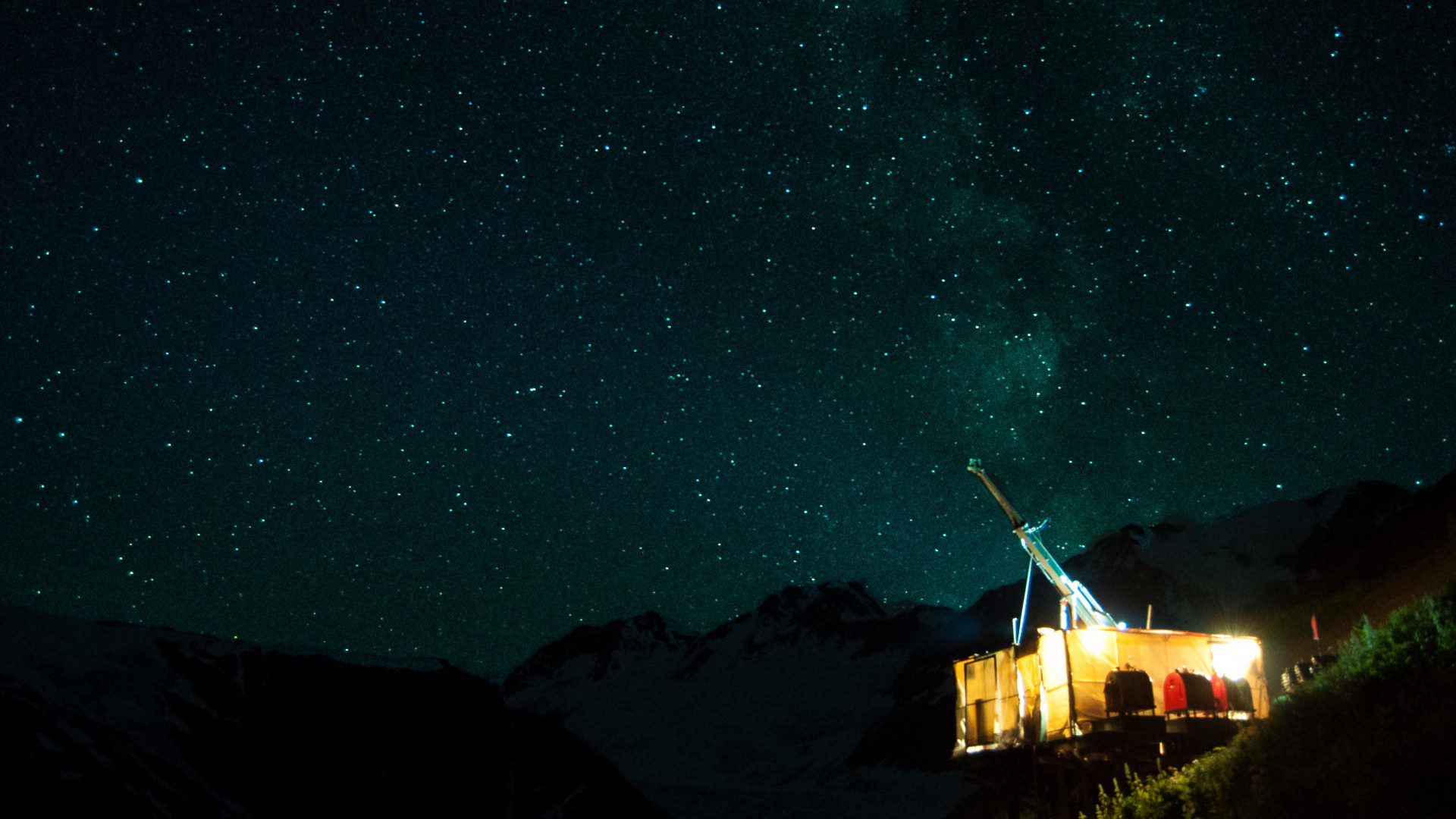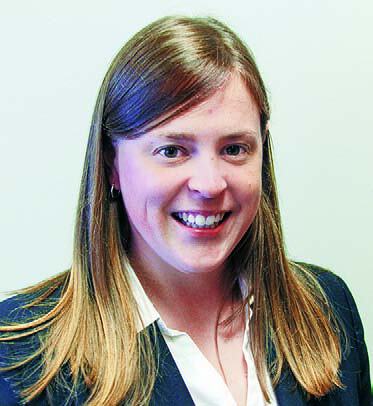
Welcome to Mineral Exploration Roundup 2015! This year’s conference marks an important milestone for Roundup as we move into our new home at the Vancouver Convention Centre East.
Every January, AME BC’s Mineral Exploration Roundup conference in Vancouver brings together prospectors, geoscientists, investors, suppliers and those interested in the mineral exploration industry. And over the past 31 years of the conference, Roundup’s value to the mineral exploration community has increased. Mineral exploration has always been rooted in prospecting and geoscientists. However, over time, declining commodity reserves, increasing competition for investment dollars, and awareness of the need to build a social licence with Aboriginal Peoples and communities have all presented opportunities – and every year, Roundup is a venue to keep up to date on new best practices and solutions.
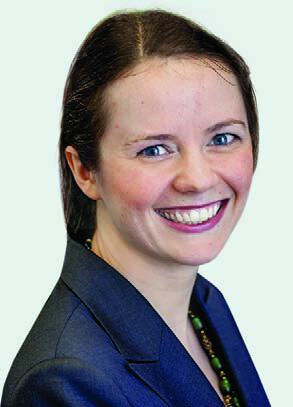
Mineral Exploration Roundup 2015, with its theme “Intelligent Exploration,” will highlight our renowned Technical Sessions, Core Shack, Prospectors’ Tent and Map Tent, where you will learn about the latest discoveries and the strategies used to uncover mineral deposits. New this year are our best-practice Show Case Sessions, which will underscore the growing importance to our industry of Aboriginal engagement, corporate social responsibility, health and safety, land access and use, human resources and government relations. We also encourage you to take part in special events including our new Discovery Day, featuring public-interest talks relating to our industry and activities for the whole family. Finally, we invite you to enjoy our expanded exhibit hall, various networking events and the always-popular short courses and field trips where you will build lasting contacts with colleagues and suppliers.
Join us at AME BC’s Mineral Exploration Roundup 2015: Intelligent Exploration, from January 26 to 29, 2015, under the Canada Place sails at the Vancouver Convention Centre East.
General Information
Roundup 2015 will be held at Vancouver Convention Centre East, 999 Canada Place, Vancouver, B.C.
Visit www.amebc.ca/roundup to register and find conference, visitor and hotel information.
For registration questions, contact Conexsys Event Registration at 604.488.1435 ext. 63 or toll-free at 1.855.787.2457.
The Association for Mineral Exploration British Columbia (AME BC) sincerely thanks the sponsors of Mineral Exploration Roundup 2015 confirmed at the time of printing for their support.
Short Courses & Field Trips
Register for Short Courses and Field Trips today; these are often sold out well in advance of the conference.
Short Courses
Short Course 1: Mining Company Disclosure 101
Friday, January 23
Presented by: TSX Venture Exchange, BC Securities Commission and Investment Industry Regulatory Organization of Canada (IIROC)
Learn the fundamentals of good mining company disclosure. This course is designed to help geologists and engineers prepare and approve technical disclosure, and to understand the underlying principles of timely disclosure. This course offers valuable information that you can apply immediately. It addresses common areas of mining technical disclosure including the regulatory framework; rules and regulations; materiality and timely disclosure; technical report fundamentals and common mistakes; TSXV and BCSC-specific filing requirements; website, social media and investor relations materials; disclosure in news releases; and common mistakes and changes in reporting reserves and resources.
Short Course 2: Getting it Right: Corporate Social Responsibility in Exploration and Development
Friday, January 23
Presented by: AME BC Corporate Social Responsibility Committee
Sponsored by: Goldcorp Inc.
This interactive short course will show project managers, camp managers and field staff how to apply Corporate Social Responsibility (CSR) in an exploration context. The course provides practical tools and techniques in three key areas: making the business case for CSR – why it’s key to exploration success; engaging and consulting effectively – who to involve, when, and how; and sustainable environmental practice – situations to anticipate and how to prepare and/or respond. Facilitated workshop exercises will be based on real-world situations for explorers in British Columbia. A variety of learning techniques will involve participants in simulated project planning and problem-solving. Workshop materials will include easy-to-follow tools as valuable, hands-on takeaways.
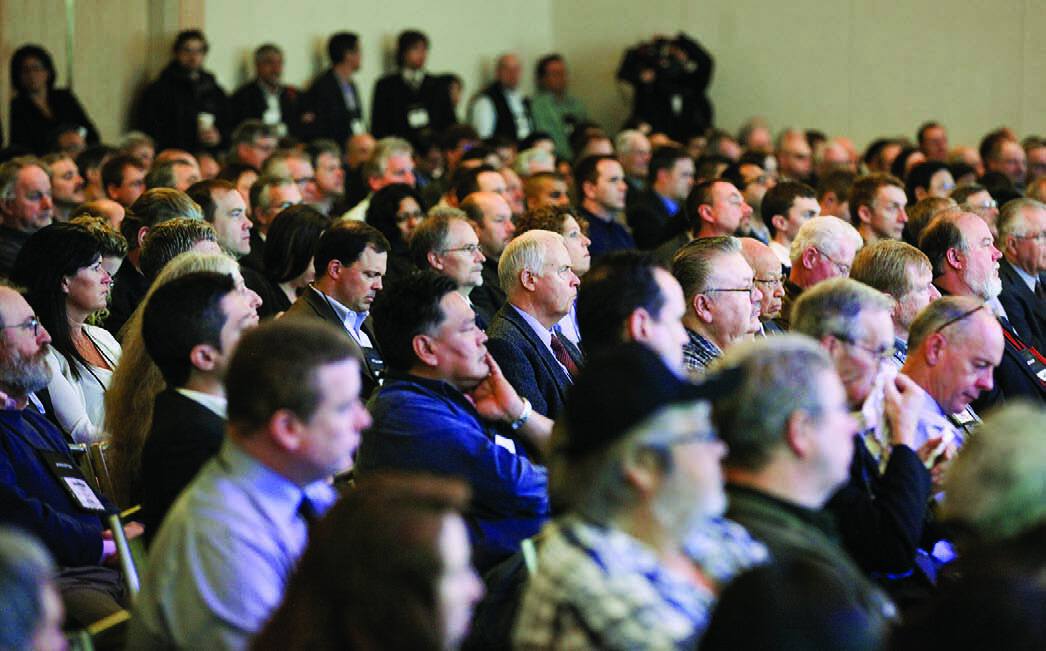
Short Course 3: Mining Law: What Every CEO Should Know
Friday, January 23
Presented by: Brian Abraham, Dentons Canada
Sponsored by: Dentons Canada LLP
This short course will comprise four separate seminars covering a range of topics of key interest to industry participants, and to mining company executives in particular. The course, to be taught by legal and industry experts, will include discussions on the following topics: tips for negotiating and drafting Letters of Intent for mining deals, including key terms, and how to avoid common pitfalls and problems; legal and commercial considerations when structuring royalties and negotiating royalty agreements; guidelines for successfully negotiating joint-venture arrangements and option agreements, from the perspectives of both major and junior mining companies; and timing and strategies for negotiating with First Nations, including how to identify objectives and create partnerships.
Short Course 4: Understanding Alteration: Use in Exploration and Development
Friday, January 23 – Saturday, January 24 (two-day course)
Presented by: PetraScience Consultants Inc.
The course will provide an overview of alteration mineralogy in relation to ore systems and the use of alteration in exploration. The course will include extensive hands-on sessions with large rock suites and case studies, an introduction to field-portable tools, and reviews of ore-deposit-exploration models principally focused on gold, silver, copper and zinc deposits. The use of alteration mineralogy in assessing potential and developing targets will be emphasized, and the potential application of alteration mineralogy to geometallurgy will also be discussed. The course is designed for young professionals, students with some exploration experience, and more senior professionals who are interested in developing new skills and being updated on emerging methods and approaches.
Short Course 5: Mineral Deposit Models: Giants Outside the Box
Saturday, January 24 – Sunday, January 25 (two-day course)
Presented by: UBC Mineral Deposit Research Unit
Sponsored by: Goldcorp Inc.
Mineral deposit models as taught in university courses provide useful first-order guidelines for exploration. However, no two ore deposits are alike and they rarely fit the model perfectly. This short course will focus on deposits in Cordilleran settings that have important features or are found in tectonic settings that deviate from textbook models. Many of these deposits are exceptionally large or rich. The course will include presentations focusing on characteristics, footprints and processes of formation as well as case studies from exploration. An important part of the course will concentrate on magmatic-hydrothermal systems, which include variations of porphyry, epithermal and IOCG deposits as well as SEDEX-, MVT- and VMS-style base metal mineralization.
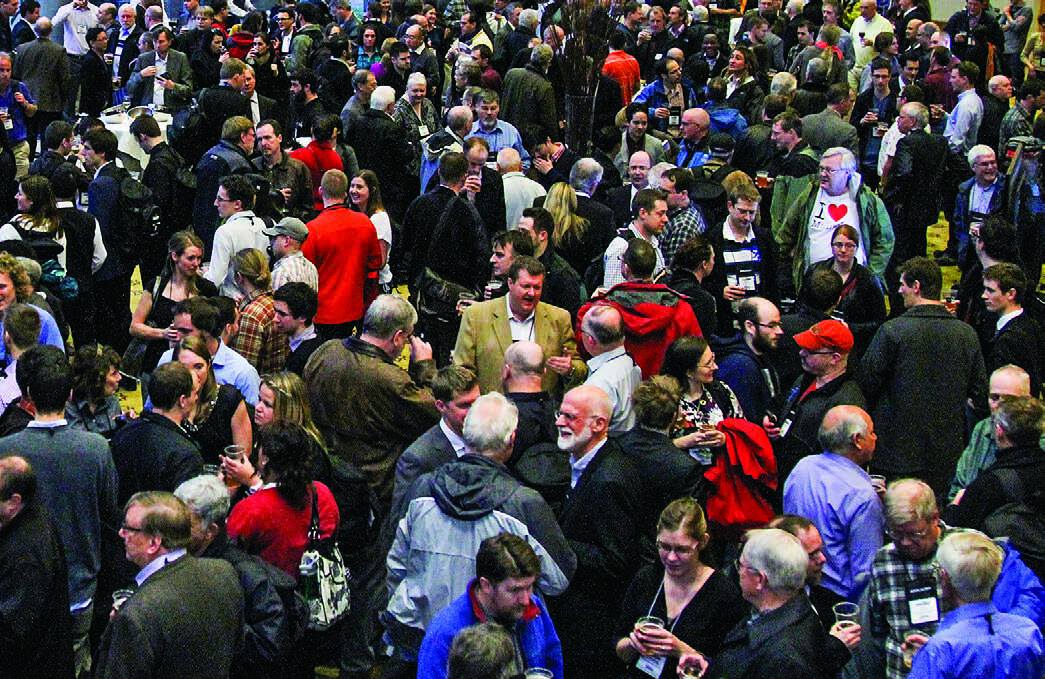
Short Course 6: Mineral Exploration and Mining Essentials
Saturday, January 24 – Sunday, January 25 (two-day course)
Presented by: Dr. Robert Stevens
This course provides a complete overview of the mineral exploration and mining industry for those working in or involved in the industry, but who do not have a technical background in geology or mining. It is suitable for investor relations and corporate communications personnel, accountants, lawyers, investment advisors, directors and a wide range of business professionals. This engaging and highly informative course, which has been delivered throughout North and South America, is effective at tying together and explaining the relevance and importance of the various parts of the industry. Each participant will receive a copy of the bestseller, Mineral Exploration and Mining Essentials, authored by Dr. Robert Stevens.
Short Course 7: 3D Integrated Interpretation for Geologic Modelling
Saturday, January 24
Presented by: Geological Survey of Canada
Regional-scale 3D modelling is important in enhancing our geological understanding of the subsurface to explore for mineral deposits at greater depths. The challenge is to scale information available in densely drilled mine sites to regional 3D models in sparsely drilled environments. This short course will present innovative methods used for regionalscale 3D geological modelling of the world-class Pb-Zn SEDEX system in the Purcell Anticlinorium in B.C. developed through the Geological Survey of Canada’s Targeted Geoscience (TGI-4) program. The course will demonstrate how integration of geological map, drill hole and geophysical data is leveraged in a 3D environment to support interpretation of the entire ore system, thereby increasing the potential for deep discovery.
This course complements Short Course 8, “3D Integrated Interpretation: Deep Exploration Targeting,” presented by Mira Geoscience Ltd. on Sunday, January 25. Registration to both courses is encouraged.
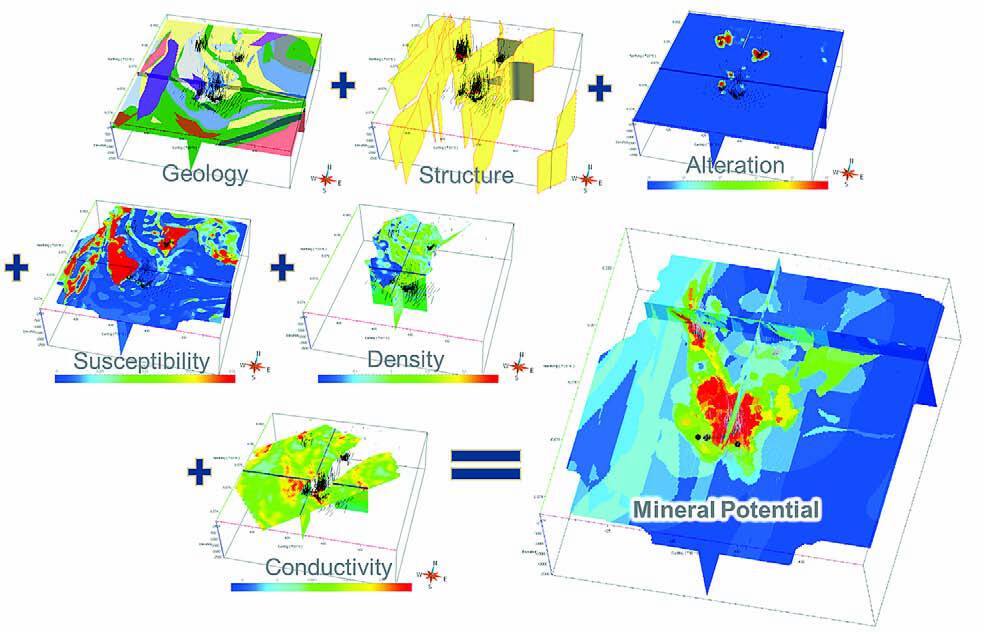
Short Course 8: 3D Integrated Interpretation for Deep Exploration Targeting
Sunday, January 25
Presented by: Mira Geoscience Ltd.
Integration of geology, geophysics and geochemistry becomes increasingly essential as exploration focuses on deposits at greater depths, and integrated interpretation demands that geoscientists of all disciplines collaborate. The petroleum industry concept of cross disciplinary teams sharing a common earth model (CEM) must be adopted for deep mineral exploration. Mira Geoscience has been developing tools and methodologies for 3D integrated interpretation in mineral exploration for many years, and presents this short course using the Lalor Lake VMS deposit to demonstrate the principles and practicalities of the CEM approach. Integrated modelling and interpretation of geophysical and geological data will be emphasized, and correlated with geochemical data. Using the Lalor CEM, VMS targets are generated and ranked in 3D via analysis of multi-disciplinary criteria.
This course complements Short Course 7, “3D Integrated Interpretation: Geologic Modelling,” given by the Geological Survey of Canada on Saturday, January 24. Registration to both courses is encouraged.
Short Course 9: The Geology of Gem Deposits
Sunday, January 25
Presented by: Dan Marshall, Simon Fraser University; Lee Groat, University of British Columbia; Thomas Stachal, University of Alberta; and David Turner, University of British Columbia
This one-day course will concentrate on gemstones from a geological perspective. Gem deposits are relatively rare as the geological conditions required for their formation are unusual. Recently, modern geological models and analytical techniques have been applied to gem occurrences worldwide, and our understanding of gem formation and their associated geological models and exploration methods is constantly changing to accommodate new data and ideas. This short course will review our current understanding of diamond, ruby, sapphire, emerald and jade deposits, but will also examine the lesser known coloured gems, such as topaz, tanzanite, chrysoberyl, tsavorite and gem beryl. The course concentrates on Canadian occurrences as well as selected classic deposits.
Short Course 10: Designing Better Maps
Sunday, January 25 (half-day; morning)
Presented by: Bob Plummer, Smart Map Services
A well-designed map is a very easy-tounderstand and important communication tool for all technical and non-technical exploration industry professionals. This course covers the concepts of map design and layout, as well as examples of poorly made maps and ways to improve them. This course is relevant for anyone involved in making maps for National Instrument 43-101 reports to trade show booths and everything in between.
Short Course 11: iMapBC Training
Sunday, January 25 (half-day; afternoon)
Presented by: Terry Lanktree, DataBC
This course will introduce attendees to the new version of iMapBC, used to view thousands of map data sets hosted in the BC Geographic Warehouse. iMapBC also allows users to put together map layers of interest; upload personal map data; and produce maps that can be printed or emailed to others. This course will review available functionality with hands-on exercises. From the basics of navigation to uploading and analyzing data, all tools within iMapBC will be covered. Attendees will learn to make, mark up, print and share online maps.
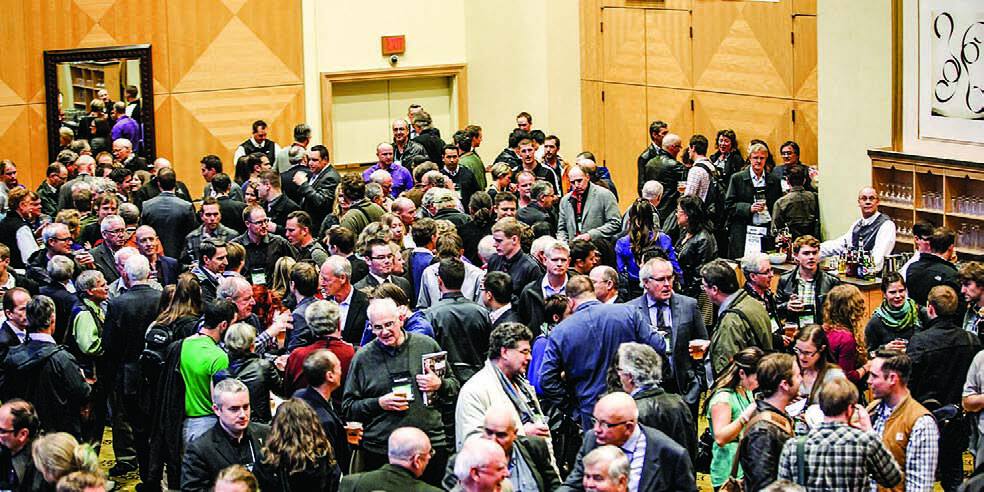
Short Course 12: Student Orientation
Sunday, January 25
All students and new grads looking to enter the mining and exploration industry are invited to attend the Roundup Student Orientation – a brand-new program that will equip them with the skills and knowledge needed to get the most out of Roundup and launch their careers. The orientation will feature an interactive session on practical networking and job searching skills, and will cover what students and grads need to know about the industry, including jobs, company structures and mining cycles. As well, there will be some great speakers talking about their own experiences, with a particular focus on staying employable in industry downturns. The orientation will provide the opportunity to practise networking with fellow students, and will be followed by the Student-Industry Networking Event later that evening.
Field Trips
Lehigh Sechelt Mine (Lehigh Hanson Materials Limited)
Sunday, January 25
The Sechelt Mine is one of the largest aggregate mines in Canada, producing more than four million tonnes of products per year. It is located immediately adjacent to the community of Sechelt, on B.C.’s Sunshine Coast. Products from this mine are shipped via oceangoing freighters to markets mainly on the west coast of North America for use as construction materials. The award-winning reclamation at the Lehigh Sechelt Mine covers over 50 hectares of the mine site, and is highly lauded by environmental groups, First Nations groups and government authorities.
The field trip will depart from downtown Vancouver early Sunday morning. The tour will include a presentation on corporate social responsibility, community relations and the geology of the deposit. A tour of the pit and mill will follow, weather permitting.
Colorado River, Northern Arizona
Friday, January 30 – Sunday, February 1
*Participants are responsible for travel to and from Las Vegas for the field trip’s departure point.
The field trip “Context of Contacts, a Voyage of Inquiry and Instruction in the Colorado River Extensional Corridor” is about mapping and map reading in an area that has been investigated thoroughly by prospectors and academics for over 100 years. The identity of at least four key contacts, as described in peer-reviewed publications, will be critically examined. Contacts include: 1) an intrusive contact that is probably an unconformity; 2) a detachment fault that is probably an intrusive contact; 3) another detachment fault that is probably an unconformity; and 4) a depositional contact that is probably a fault (caldera margin). Many opportunities to hone field observation and mapping skills, particularly with respect to breccias and how they relate to the interpretation of contact relationships, will be offered over two days of interactive exercises located in the Mojave desert of Arizona, Nevada and California.
Networking Events
Purchase tickets through registration.
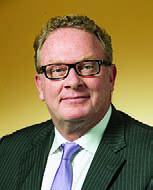
CEO Breakfast
Monday, January 26
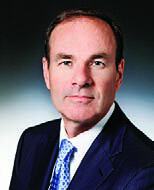
AME BC Finance Lunch
Monday, January 26
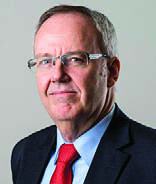
AME BC Lunch
Tuesday, January 27
AME BC Celebration of Excellence Awards Gala
Tuesday, January 27
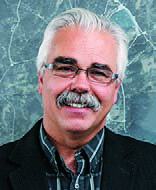
AME BC Health & Safety Awards Breakfast
Wednesday, January 28
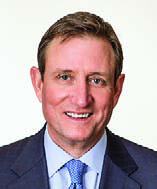
International Lunch
Wednesday, January 28
General Networking Events
Included with registration.
Student-Industry Networking Event
Sunday, January 25
Ice Breaker Reception
Sunday, January 25
B.C. Night
Monday, January 26
Beer and Sandwich Lunch
Wednesday, January 28
Included with Full Delegate registration.
Technical Sessions
Official Opening Ceremonies and 2014 Regional Reviews
Monday, January 26 | Morning
In addition to the opening ceremonies, this session will provide regional annual overviews from B.C. and Yukon as well as regional overviews from two other active exploration areas. This year’s overviews will focus on the advancements of new and previously known discoveries, and the knowledge progression of deposit and regional geological models within the highlighted areas.
Exploring for the Next Giant Discovery: Giant Ore Deposits and What They Can Teach Us
Monday, January 26 | Afternoon
Discovery and development of a world-class ore deposit is the goal of all explorers. These deposits form from a unique confluence of factors that are rarely repeated and that allow them to stand out as giant ore deposits. They are usually atypical and form distinct end members within their specific deposit model. Although giant ore deposits can be very difficult to find, they can provide important criteria to help guide future exploration. This session will examine the specific characteristics that produced five giant ore deposits. Presentations will highlight the stratigraphic and structural controls, combined with the geochemical and geophysical attributes, to define criteria that will help explorers seek out second- and third-tier mineral deposits in analogous terrains. The range of deposit types include Archean-hosted orogenic gold, Carlin gold, porphyry copper and volcanogenic massive sulphide. Join us to learn more about these important deposits and how they can help direct and focus future exploration.
Public Geoscience: A Resource for You
Tuesday, January 27 | Morning
Public geoscience provides fundamental knowledge of the geology framework necessary to identify areas with high mineral potential to support successful targeting of minerals-related investments. Accessing public geoscience data reduces investment risk and encourages intelligent exploration. In the Canadian Cordillera, publicly funded studies are conducted by geoscientists from the British Columbia Geological Survey, the Geological Survey of Canada, Geoscience BC and the Yukon Geological Survey. In this session, talks will highlight results from recent and ongoing projects that are of interest to the mineral exploration sector, and provide information on how to access new data and information.
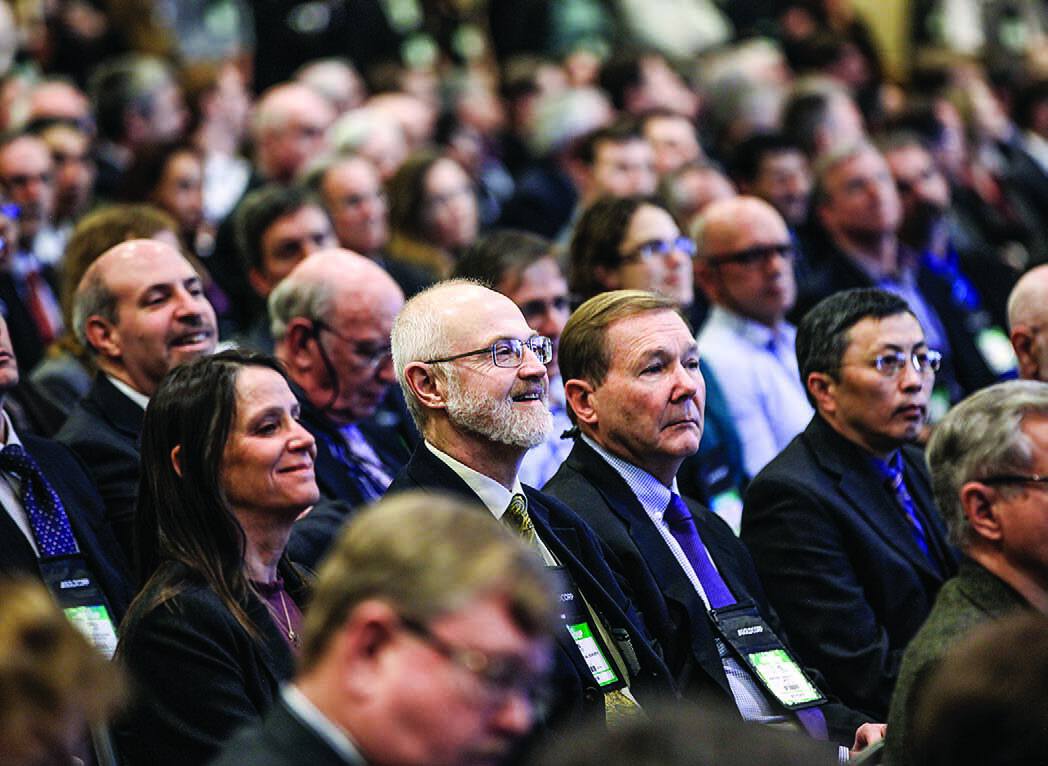
British Columbia, Yukon and Alaska: Mineral Exploration and Mining Highlights
Tuesday, January 27 | Afternoon
The Cordillera of British Columbia, Yukon and Alaska has a rich mining history and great diversity of deposit types. Intelligent and determined exploration continues to yield exciting and important new discoveries, including gold (epithermal, shear zone, Carlin and intrusion-related), porphyry (copper-gold and copper-molybdenum), base- and precious-metal-enriched volcanogenic massive sulphide, SEDEX , coal and more. Presentations in this session will highlight recent mineral exploration and development activities.
Canada Session: Replicating Success – Building on What Has Worked and Re-Evaluating What Has Not
Wednesday, January 28 | Morning
Raising money for exploration has become a more challenging endeavour in recent years. In order to maximize success in the field and in the markets, companies must use exploration tools intelligently. This often includes re-evaluating a project by applying new ideas or testing new geological models and/or using new technology. This year, we will hear from a variety of companies from across the country that have made impressive strides towards success on their respective projects via intelligent exploration.
International Exploration Successes
Wednesday, January 28 | Afternoon
Successful and cost-effective mineral exploration programs require intelligent application of the numerous tools and techniques available to every exploration team. The most useful exploration tool, however, is the human brain. With this in mind, the International Exploration Successes session will provide eight highprofile examples of intelligent decisionmaking at various stages when exploring different geologic terranes beyond Canada. Lessons learned and relayed by highly experienced presenters will provide invaluable insight to help improve future decision-making on your exploration projects.
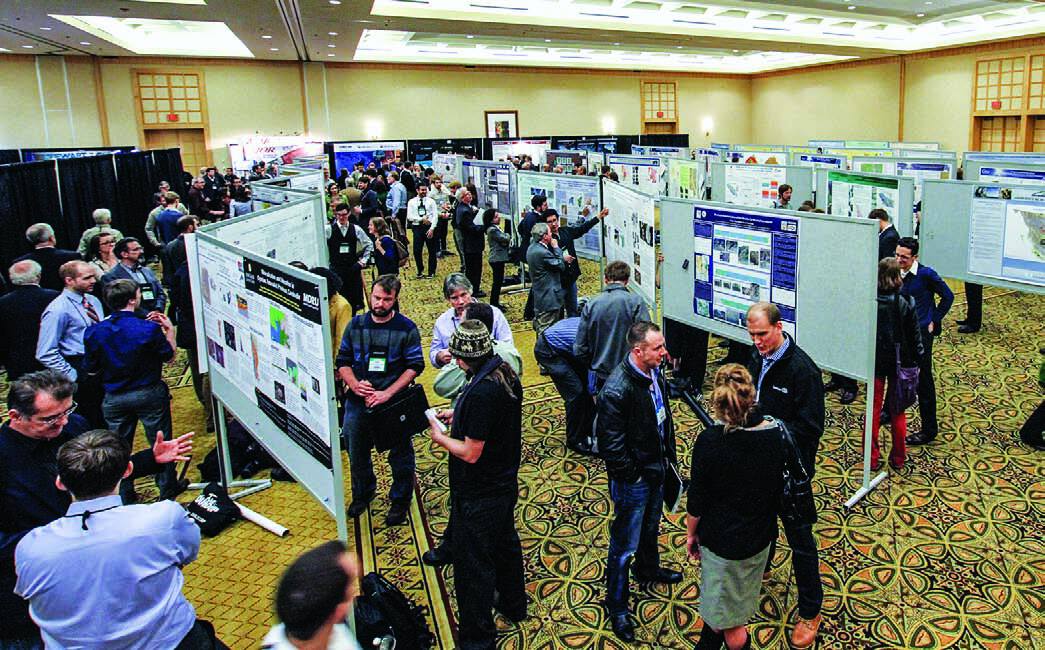
Commodities: A Repositioning Epoch
Thursday, January 29 | Morning
A panel of dynamic presenters will convey their divergent views on the direction of resource commodity pricing and the opportunities and risks presented to participants in the global mineral exploration and development community. A juxtaposition of views on the economic outlook has tempered market sentiment, but has begun to attract significant capital and the interest of contrarian investors. Topics covered by industry analysts and executives will include trends and supply-demand fundamentals of precious and base metals, uranium and diamonds.
Breaking Discoveries
Thursday, January 29 | Afternoon
This session, new to Roundup, will feature relatively early-stage drill hole plays that have high potential but are nowhere near critical mass. The companies will be selected based on the quality of the exploration results, the exploration upside and the target type. This session, recognizing early technical success, is especially important in this period of exploration under-capitalization.
Show Case Sessions
Show Case Sessions are new for 2015 and can be accessed with a Full Delegate Pass. These will cover themes not covered in the Technical Sessions.
Aboriginal Engagement – The Business Case for RelationshipBuilding in the Mineral Exploration and Mining Sector – The Upside of Managing Aboriginal Risk
Tuesday, January 27 | Morning
What is Aboriginal risk? In B.C., and in all of Canada, the probability of projects being delayed or not advancing at all can often be attributed to not taking the necessary time and effort to establish and build relationships with Aboriginal Peoples within whose territory the projects are located.
Understanding these risks is therefore a key part of successful and intelligent exploration programs.
Well-known industry and Aboriginal leaders will shed light on how relationship-building throughout the life cycle of a mineral exploration or a mining project, within the context of Aboriginal and treaty rights, can reduce the risk of either Aboriginal communities opposing a project or of regulatory processes being delayed. Taking time to build relationships can create an upside for industry to more readily obtain community support and access financing and investment. For Aboriginal communities, the upside can be found in economic opportunities and in environmental and social sustainability.
Speakers will address topics such as:
- The economic value proposition from an Aboriginal perspective
- The investment proposition from an investment perspective
- The project financing proposition from a finance perspective
- The social value proposition from an industry perspective
- The sustainability proposition from an Aboriginal perspective
- The current context from a legal perspective
Corporate Social Responsibility – Creating Value Through Environmental Planning from Early Exploration to Project Development
Tuesday, January 27 | Afternoon
Like saving for the future, small steps in environmental studies during early exploration can build tremendous project value compared with deferring studies to subsequent mine development stages.
For example, implementing shortand long-term environmental programs can help to build awareness around sensitive habitats and species, and define the relevance of environmental values to exploration infrastructure and construction. Other tangible benefits of early environmental studies include a more robust understanding of critical ecological components to inform the baseline scope for future assessments; building traditional knowledge as a resource tool to assess effects; training for community members; and building partnerships with local communities for continued engagement and monitoring.
Incorporation of environmental values into early exploration is especially important given increasing regulatory and social expectations to protect the environment and minimize impacts at all stages of mineral exploration and development. Proactive studies, as explored in this session, are everyday small steps that ultimately lead to better incorporation of environmental and social values into resource projects. They also lead to more tangible and meaningful relationships with communities of interest – providing a big step forward for all.
Environment, Health & Safety – Raising the Barr: Field Safety Reflections and Experiences from David Barr Award Recipients
Wednesday, January 28 | Morning
AME BC presents the David Barr Award annually to honour achievements in leadership and innovation excellence in exploration safety; improvement in safety records from year to year; and/or demonstrated efficient and compassionate behaviour in dealing with an unfortunate accident.
In the Health and Safety Show Case Session, four past David Barr Award recipients will share how health-and-safety-related experiences have shaped or influenced either their career or their company’s operations. Reflections on past experiences and the subsequent implementations of additional safety standards and protocols will be discussed. Collectively, the presenters represent a diverse group within the mineral exploration and mining community, including managers of grassroots through advanced-stage exploration projects, mining operations and drilling companies.
The target audience includes students, geoscientists, project and mine site managers, and safety advisors and managers.
Land Access and Use – Understanding the Lay of the Land: Land Access and Use for Mineral Exploration in B.C.
Wednesday, January 28 | Afternoon
With a land base rich in minerals and coal, the largest concentration of geoscientists in the world and a long history of exploration, British Columbia is well positioned to capitalize on its natural resource and cultural assets. However, a number of challenges are impacting access to land for mineral and coal exploration in large areas of the province. This session will explore the issue of land access and land-use constraints on mineral and coal exploration activity, and the complexity of trying to integrate exploration activities into land designations that are primarily intended to manage surface values. Competing demands on the land base will also be discussed, as well as the need for an innovative solution for flexible and responsive land-use management in the province.
The session will present and discuss findings from the AME BC Land Use Mapping Project and is designed for mineral explorers, land and resource planners, government regulators, consultants and members of industry.
Human Resources – Attracting, Recruiting and Retaining the Right People with the Right Skills at the Right Time
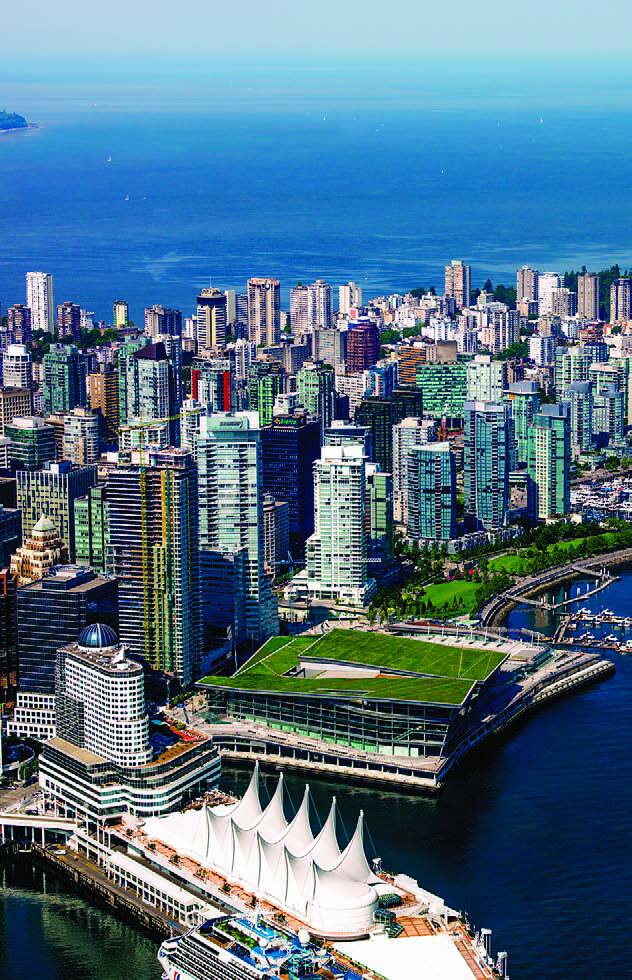
Thursday, January 29 | Morning
The fourth annual B.C. Mineral Exploration and Development Human Resources Forum will, for the first time, be offered as part of the Show Case Sessions. The session, through its engaging speakers, will highlight contemporary best practices and collaborative human resources initiatives that support a successful mineral exploration and development and mining industry in B.C. Discussion will be focused on current industry priorities. The session will be inclusive of participants’ perspectives and open to individuals currently employed as well as those looking to enter the workforce (students and transitional workers), educators and training professionals, HR professionals, senior leaders in the industry and First Nation and community representatives.
B.C. Government & Industry Session
Thursday, January 29 | Afternoon
The sixth annual B.C. Government/ Mineral Exploration and Development Forum will be featured as the closing Show Case Session for Roundup 2015. This session will bring together leaders from the mineral exploration and development sector with key government agencies and their leaders. Discussion will be focused on priority areas as identified in AME BC’s Strategic Plan and Objectives 2013–2017. This session will lead into the conference closing ceremonies presentation.
Exhibit Hall
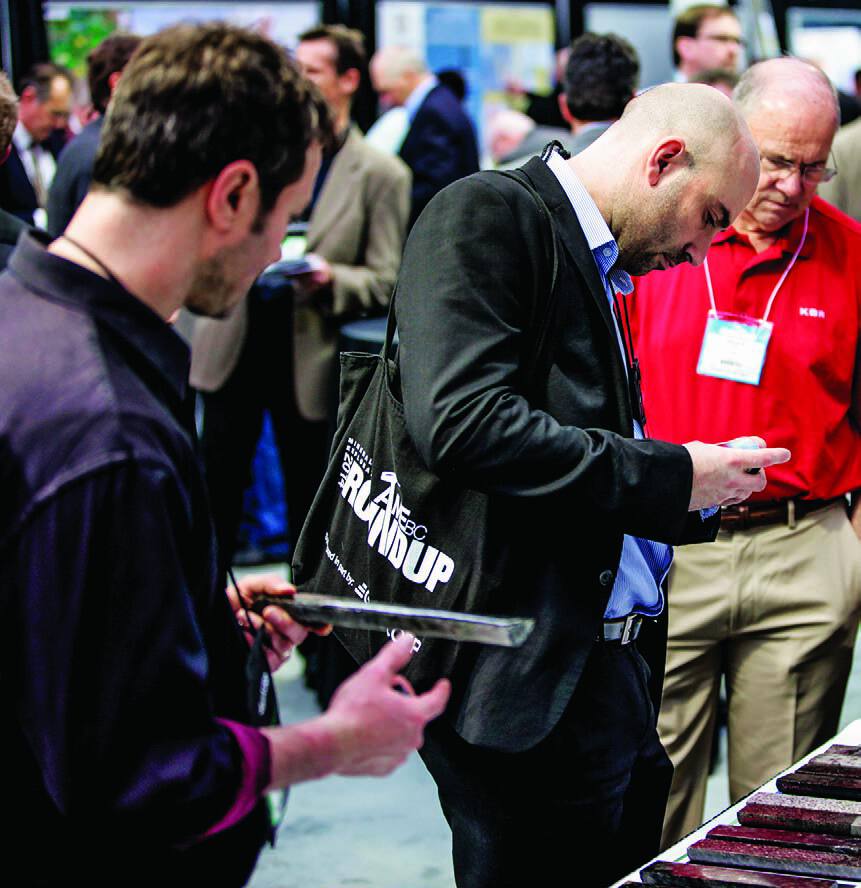
The Exhibit Hall is a staple of Mineral Exploration Roundup and presents an unparalleled opportunity to visit a wide cross-section of companies working in the mineral exploration and development sector.
The Mineral Exploration Roundup 2015 Exhibit Hall hours will be as follows:
Monday, January 26: 9 a.m. to 4 p.m.
Tuesday, January 27: 9 a.m. to 4 p.m.
Wednesday, January 28: 9 a.m. to 4 p.m.
Thursday, January 29: 9 a.m. to 4 p.m.
Core Shack
A cornerstone of Roundup, the Core Shack showcases new discoveries, leading prospects, advanced projects and operating mines from around the world. Core Shack 2015 will feature core displays from projects in diverse countries and settings, and represent a broad array of deposit types and project stages. Commodities featured in 2014 included copper, gold, silver, lead, zinc, nickel, graphite, rare earths and platinum group elements. Each two days, a new suite of the sector’s most compelling projects will be displayed, with maps, cross sections and the project’s technical representative on hand to answer questions.
Prospectors’ Tent
Every mine begins with a discovery – a prospect. While the mineral exploration and development industry continues to evolve, the role of the prospector is no less important today than it was a century ago.
The Prospectors’ Tent, located in the Exhibit Hall, provides an opportunity for independent prospectors to present their hard-earned mineral properties and discoveries. Featuring displays of maps, rock samples, drill core, sketches, photographs and analyses, it is a great place to see properties with potential throughout B.C. and Yukon, and perhaps to make some discoveries of your own.
Student Presentations
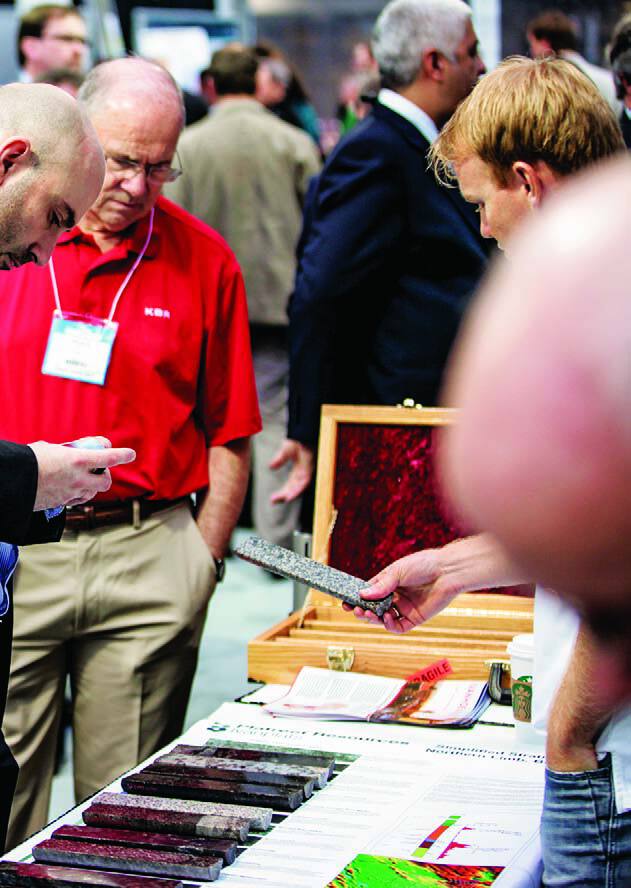
In addition to the Poster Session, this year’s conference is introducing a new feature to highlight some of the student research being done on mineral deposit and explorationrelated projects in British Columbia and around the world. Selected university students will be invited by the Roundup Organizing Committee to present a technical talk on their research related to the conference theme of “Intelligent Exploration.” These sessions will be held over the lunch hour between Show Case Sessions.
Poster Session
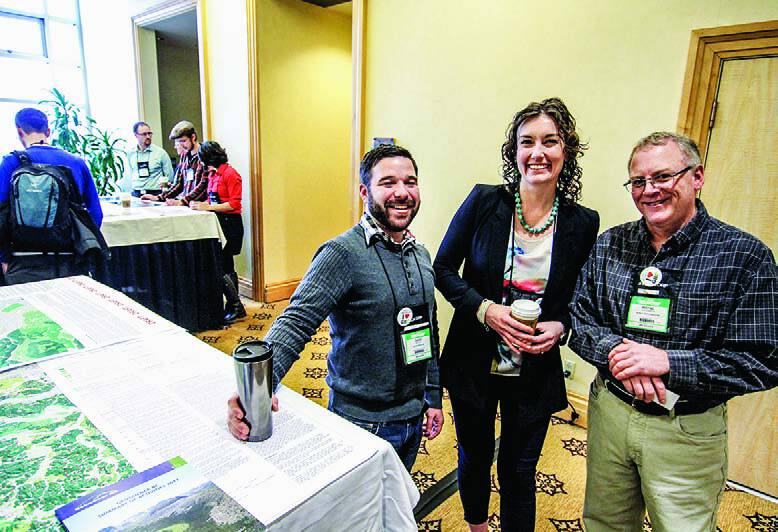
The annual poster session will showcase more than 90 posters for all of Roundup 2015. Posters will feature the latest results of geological mapping and economic geology studies from the BC Geological Survey, the Geological Survey of Canada and Geoscience BC as well as numerous university student research projects. This session is particularly designed for one-on-one discussions and information exchange with geoscientists most familiar with the geology within your area, or areas, of interest. There will be posters presenting the results of geological mapping, geophysical and geochemical surveys, as well as research on a wide variety of deposit types from across the Cordillera, other parts of Canada and the world.
University students are encouraged to submit poster presentations for display and prizes will be awarded: $600 for first prize, $400 for second prize and $200 for third prize.
Map Tent
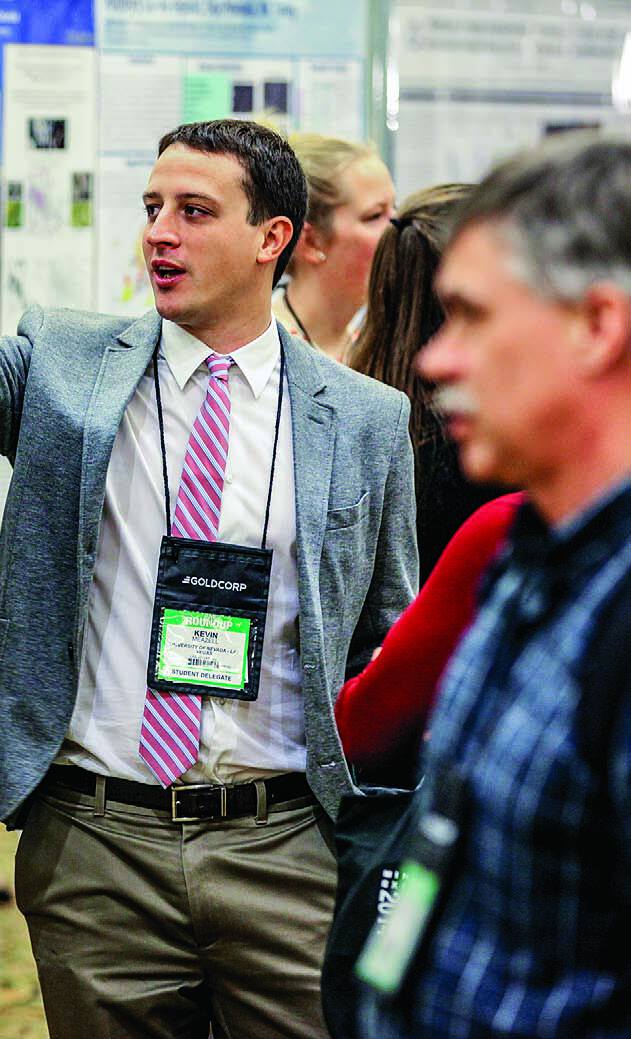
The Map Tent is an integral part of the Roundup technical program, providing an opportunity for delegates to view exploration property maps, crosssections and samples. Displays will focus on generative exploration plays, and will provide a venue for discussing geological, geochemical and geophysical survey results and exchanging ideas. The Map Tent will give participants the opportunity to gain insights beyond what is normally presented at standard trade show exhibits or on corporate websites.
Special Displays & Programs
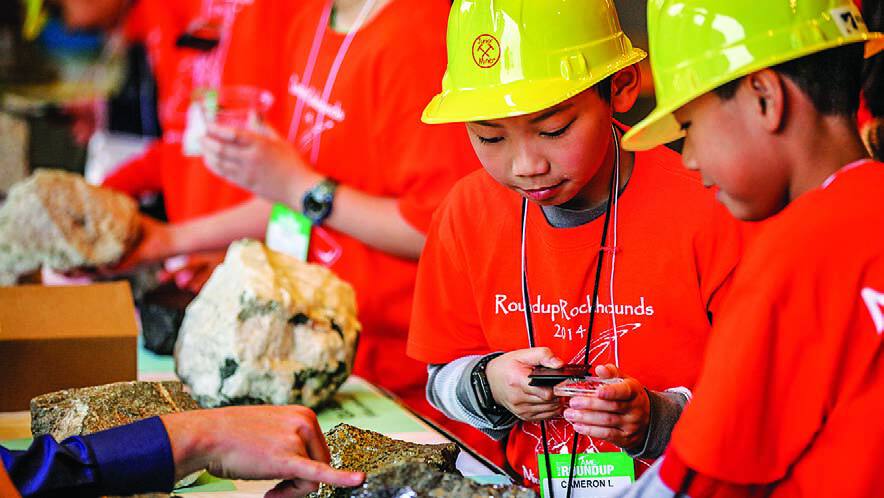
Public Outreach: Discovery Day!
Sunday, January 25 | 11 a.m. – 4 p.m.
Discovery Day will provide an opportunity for members of the public to attend a series of interesting talks about the geology and mineral exploration and mining history of Vancouver, B.C. and Yukon. There will also be exhibits on rocks and minerals, Aboriginal culture and B.C.’s mineral exploration and mining past, as well as live, hands-on demonstrations of gold panning. Talks will cover topics ranging from ice age fossils in the Yukon gold fields to the history of mining on the southwest coast and the seismic and volcanic geology of southwestern B.C.
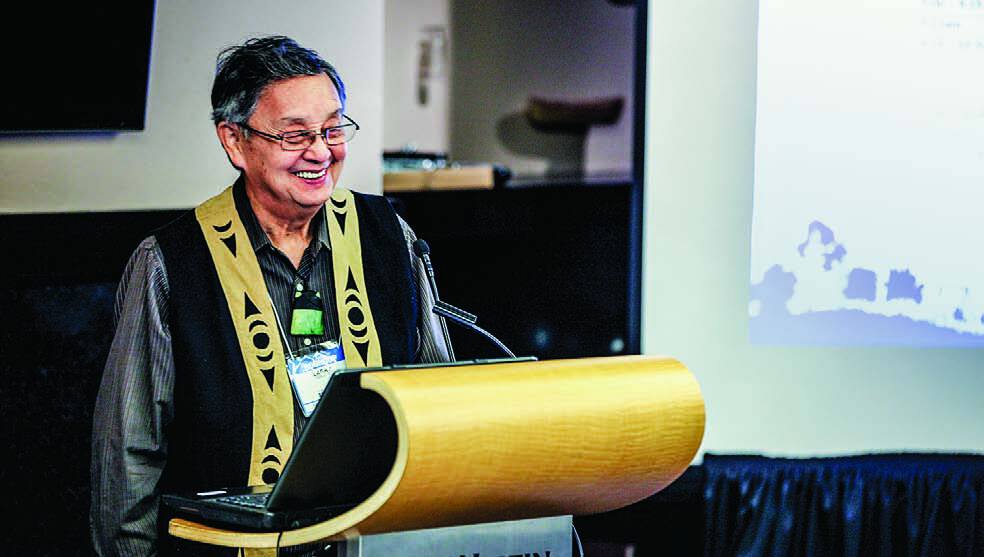
AME BC’s The Gathering Place; Where Aboriginal and Industry Leaders Meet
Monday, January 26 – Thursday, January 29
The Gathering Place is a comfortable setting to meet like-minded individuals and businesses, share stories and cultural experiences, and learn new and creative approaches to engagement and relationship-building with Aboriginal Peoples in B.C.
Hear success stories from some of B.C.’s Aboriginal and industry leaders on their journeys to reach mutually beneficial relationships that have facilitated mineral exploration and mine development. Engage in informative workshops in the morning, and listen to presentations on case studies and partake in fireside chats in the afternoon. Each day will represent a new theme, with the underlying purpose of contributing to Intelligent Exploration.
MineralsEd Roundup Rockhounds Celebrating 12 Years of Educational Programs at Roundup
In co-operation w it h A M E BC , MineralsEd hosts educational programs for students and teachers at Roundup. Select classes of elementary students attend Roundup as a crowning field trip to their geology or mining units in school; their program features hands-on learning stations and trade show exploration. Secondary students attend Roundup to build their awareness of careers in mineral exploration and mining; their program features speakers from a cross-section of the industry workforce as well as trade show exploration. Teachers attend Roundup for professional development relevant to their teaching; their program includes industry speakers in addition to trade show exploration.
AME BC Member Events At Roundup!
AME BC Annual Policy Forum
AME BC’s sixth annual policy forum will present a venue for representatives of B.C.’s mineral exploration and development sector to discuss opportunities and challenges facing the industry. Discussion is focused on priority areas as identified in AME BC’s Strategic Plan and Objectives 2013-2017 as well as policy issues.
103rd Annual General Meeting
The 103rd annual general meeting of the Association for Mineral Exploration British Columbia will be held on Monday, January 26. The AGM gives AME BC an opportunity to communicate with our members and enables members to participate in the governance and leadership of the organization. All members of AME BC will receive a notice of the time and location. We welcome and look forward to your participation as a member of AME BC. •
